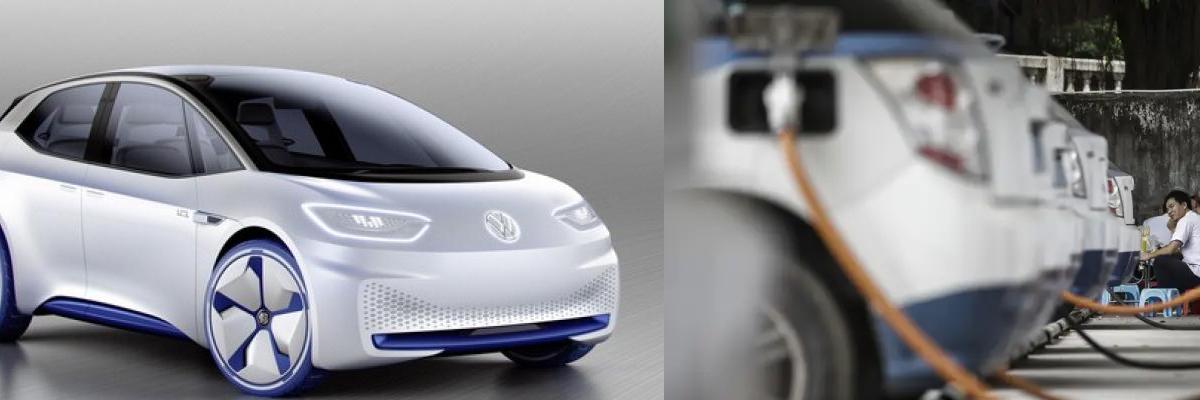Chile drives electric vehicle rollout in Latin America

A massive cargo ship docked in the Chilean port of San Antonio at the end of November, carrying it its belly the first 100 electric buses from China that Chileans hope will revolutionise their public transport system
A massive cargo ship docked in the Chilean port of San Antonio at the end of November, carrying it its belly the first 100 electric buses from China that Chileans hope will revolutionise their public transport system.
Chile’s ambitious plan to face down its capital Santiago’s notorious smog problem includes the rollout of electric scooters, cars and taxis, as well as lorries for use in the mining industry.
Mineral-rich Chile - which is not only the world’s largest copper producer but also the second-largest producer of lithium, a key component in electric vehicle batteries - aims to increase the number of electric vehicles tenfold by 2022.
Energy minister Susana Jiménez told Reuters the government wanted electric vehicles to account for 40 per cent of Chile’s private fleet and 100 per cent of public transportation on the roads by 2050.
The initiative puts Chile at the forefront of clean mobility in Latin America as well as among developing countries worldwide.
But it represents a significant challenge given the persistently high price of electric vehicles and the paucity of charging points in the country. Chile has just 40 public charging stations - half of them in Santiago, according to the energy ministry.
Enthusiasts of the new technology prefer to focus on the pluses of clean motoring, such as the reduction in noise and air pollution as well as lower fuel costs.
The operation and maintenance costs of an electric bus are also around 70 per cent less than those of a diesel engine, according to Chile’s Ministry of Transport.
“Chile will be second only to China as a nation with the greatest quantity of electric buses in the world,” Chilean President Sebastian Pinera said at the start of November when the government took delivery of six BMW i3 electric cars destined for ministerial use.
Studies by McKinsey and Bloomberg bear his claims out - of the 385,000 electric buses on the road worldwide last year, 99 per cent are in China.
The Netherlands and Britain have more than 300 electric buses each but they are spread among several cities rather than concentrated in one, as will be the case in Santiago.
The Chilean capital will have 200 in total, the government said. The 100 that recently arrived were manufactured by Chinese firm BYD Electronic International Co Ltd, financed by the local subsidiary of the Italian power utility Enel Generacion Chile SA and will be operated by Metbus, a private Chilean company.
Another 100 due to be added to the Santiago fleet are being financed by French energy generation firm Engie Energia Chile SA and manufactured by China’s Zhengzhou Yutong Bus Co Ltd.
Other Latin American countries are catching on.
Mexico City has a booming market in electric scooters and bicycles. It also plans to introduce between 300 and 500 electric buses.
Peru has slashed the import tax on electric vehicles to zero while Colombia is converting public diesel buses to unspecified, cleaner engines.
If the present fleets of buses and taxis spread across 22 Latin American cities were replaced by electric vehicles today, by 2030 almost USD 64 billion in fuel would have been saved, and 300 million tons less of carbon dioxide equivalent would have been pumped into the air, according to a UN study.
Chile offers electric vehicles exemptions from environmental tax and traffic restrictions, as well as subsidies and fast-track licensing to taxi drivers who switch to more energy efficient cars, the Ministry of Energy said.
The government is also encouraging its mining industry to look at using electric lorries, with state copper miner Codelco recently announcing a pilot scheme to introduce them.
But the electric vehicle industry remains nascent across Latin America, partly due to the high costs.
A BMW i3 equivalent to those being tested by ministers would cost around USD 60,000 in Chile, prohibitively expensive for most motorists in a country where the average monthly wage is USD 410.
Matías Asun, Greenpeace’s national director, said at the present rate of electric vehicles penetration, the government would have to take dramatic action to meet its 2050 goal.
“Our question to the government is this: From what year will it no longer allow combustion engines to be sold in Chile?” he said.











